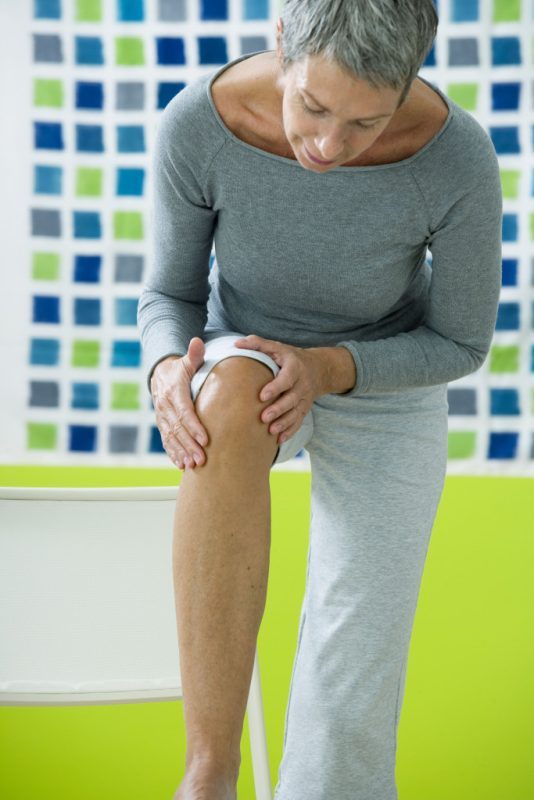• Women are more likely than men to suffer from arthritis due to hormonal, occupational, and genetic factors.
• Home modifications such as lift chairs for stairs can help reduce strain on joints and support mobility.
• Eating a healthy diet with plenty of fruits, vegetables, whole grains, and omega-3 fatty acids can reduce inflammation.
• Regular exercise and physical therapy can help maintain muscle strength and joint mobility.
• Keeping a positive outlook on life is also beneficial in managing arthritis symptoms.
Did you know that women are much more likely to suffer from arthritis than men? While there is no definitive answer as to why this is the case, several theories attempt to explain the correlation between women and arthritis. Some of these theories discuss how women can manage their symptoms.
Women and Arthritis
Women are more susceptible to mobility disorders such as arthritis. Here are some reasons why:
Hormonal Influence
One of the most commonly suggested reasons for the higher prevalence of arthritis in women is hormonal influence. Estrogen helps to maintain healthy body tissues, including joint cartilage. As a result, when estrogen levels drop during menopause, it can affect joint health and increase the risk of developing arthritis.
Additionally, estrogen is thought to play a role in reducing pain sensitivity, so when it decreases during menopause, it could also contribute to increased pain associated with arthritis.
Occupational Factors
In addition to hormonal influences, many researchers believe that occupational factors may contribute to the higher prevalence of arthritis in women. Women have traditionally been employed in physically demanding jobs requiring repetitive movement or tasks such as factory work or nursing.
These jobs can lead to overuse injuries, ultimately resulting in arthritis development over time. Furthermore, because these jobs often don’t provide adequate rest periods or pay for medical treatment, many cases go undiagnosed until they reach an advanced stage of severity.
Genetic Disposition
Finally, recent studies suggest that genetics may be a factor in why women are more likely to suffer from arthritis than men. Specific genes are known to increase a person’s risk of developing various types of rheumatoid conditions like osteoarthritis and rheumatoid arthritis—and since these genes tend to be passed down through family lines, it’s not surprising that certain families have a higher incidence of arthritic diseases than others.
How Can Women Deal With This Problem?
Arthritis can be problematic, especially for aging women. Here’s how you can help deal with it:
Mobilize Your Home
Where you live can have an impact on your arthritis pain. If possible, consider making home modifications that make it easier to move around the house. One good modification is lift chairs for stairs. These lift chairs can help you move up the stairs quickly and reduce the strain on your hips, knees, and back.
Eat a Healthy Diet
A healthy diet is essential for arthritis sufferers. Eat plenty of fruits, vegetables, whole grains, lean proteins, and low-fat dairy products. In addition, foods high in omega-3 fatty acids, such as salmon and other fatty fish, can help reduce inflammation. Here are some great diets that can help you reduce the chances of arthritis:
- Mediterranean diet: If you want to increase your intake of healthy fats, try the Mediterranean diet. This diet is rich in monounsaturated and omega-3 fatty acids, which can help reduce inflammation.
- DASH Diet: The Dietary Approaches to Stop Hypertension (DASH) diet is an excellent option for people with arthritis. It includes plenty of fruits, vegetables, whole grains, and lean proteins. It also limits salt, sugar, and saturated fat.
Exercise Regularly
Regular exercise is essential for maintaining muscle strength and joint mobility and reducing arthritis pain. Low-impact activities such as swimming or yoga can be helpful since they don’t put added strain on your joints. Additionally, physical therapy may be beneficial for managing your arthritis symptoms.
Stay Positive
Finally, staying positive is a critical factor in dealing with arthritis. Research has shown that maintaining optimism and having purposeful activities can reduce the severity of arthritis pain. So don’t be afraid to find different avenues for happiness—whether through hobbies, socializing with friends, or simply spending time outdoors.
While there isn’t one specific answer as to why women seem more susceptible to developing arthritis than men, several potential factors are at play, from hormonal fluctuations and occupational factors to genetic disposition.
For those who currently live with the condition, managing symptoms is vital. By understanding why some people are more susceptible than others and taking steps towards prevention or management early on can help reduce long-term chronic pain and disability associated with this condition.

